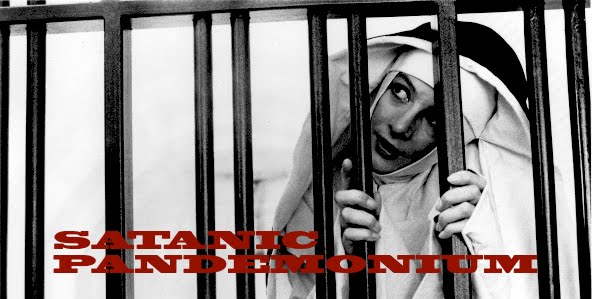Starring: Nicole Kidman, Lauren Bacall, Paul Bettany, Stellan Skarsgard, Udo Kier
Lars Von Trier is one of those intriguing, yet frustrating directors that can’t really be placed within a specific genre. Although he’s typically associated with art house filmmaking, his controversial subject matter and use of extreme violence usually guarantees him notice within the horror world. Antichrist is still getting both positive and negative attention for its hyper-stylized, over-the-top violence. It’s been a long time since I’ve seen a film that graphic and it certainly outshines any recent efforts directly within the horror genre, most of which have made me cringe in disgust, rather than terror.
The beautiful Grace (Nicole Kidman in a very brave role) is on the run from gangsters and wanders into the small, Depression-era town of Dogville. After a short trial period, the inhabitants agree to give her refuge in exchange for the menial labor she performs for them. As the town members discover her usefulness and willingness to work, they begin to warm to her considerably. Soon Grace makes a few mistakes and the power dynamic shifts – things get rapidly out of hand, escalating to a surprising level of violence that includes rape, torture, imprisonment, and murder.
Spoilers below.
The horror elements within Dogville really surprised me. It is technically a drama, but it could also be considered a Brechtian horror film. In order to prove what amounts to little more than a privileged young woman’s social experiment, Grace submits to steadily mounting indignities. First, she is taken advantage of in a more general sense by the townspeople and, as within the horror genre, this has a directly physical manifestation. The town literally encroaches on Grace’s physical body and personal space, until she is raped. After she is blamed for this indiscretion without complaint, her quiet attempts to run away are met with more rape and imprisonment in the form of a metal collar chained to a weight, which allows her to shuffle around and perform work, but not run away.
She is also given enough chain to return to bed at night, which first seems like a kindness, but really allows more of the townsfolk to perpetrate more (and more frequent) rape. Possibly the most disturbing element of the film is the fact that Grace has been in power all along. She has merely been giving the townspeople a chance to prove their goodness, see the error of their ways, and apologize. They don’t. Though she considers staying with them out of forgiveness and martyring herself, she doesn’t. The only man who did not rape her, more out of a sense of cowardice than love, which is his excuse, turns her in, fully expecting to resign her to a worse fate -- torture, execution. She remembers this at the last moment and has the entire town massacred, saving the betrayer (played equally bravely by Paul Bettany) for herself. Grace’s revenge is brutal and satisfying.
The sheer level of violence in the film, though most of it is offstage, is difficult to think through. In a horror film, on or offstage violence is expected, but is also placed within a framework where the final victim defeats the monster through an equal show of brutality and rejoins society. This last act of violence is morally defensible, as it is done out of survival, both for the individual and the larger community.
Grace defeats the monster, but the monster is small town America. She rejoins society, which is a larger, wealthier, and more technologically advanced society of gangsters. There is no moral framework and no sub-human monster, just the community itself. Her final act of violence is not a fight to the death between equals, but a sickening use of deus ex machina. Though I don’t know if the film is completely successful, Von Trier’s implications are truly horrifying.


No comments:
Post a Comment